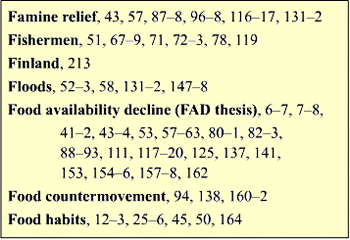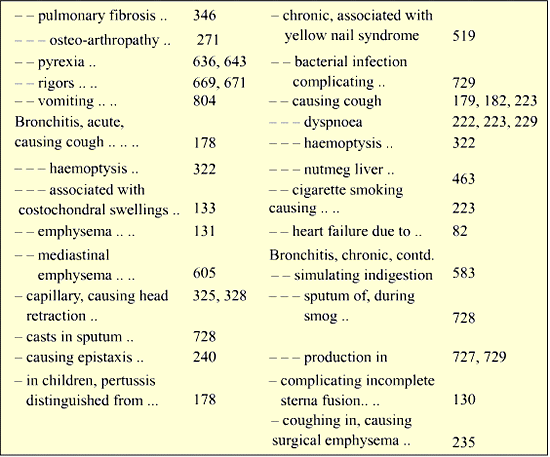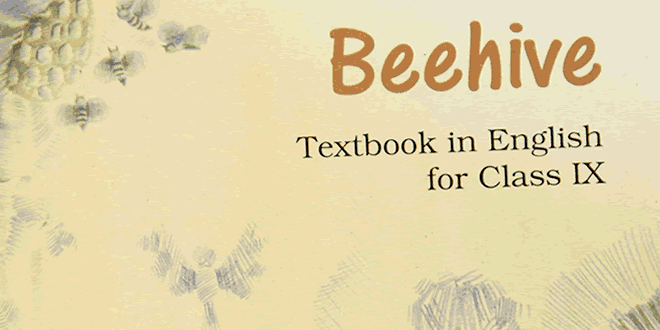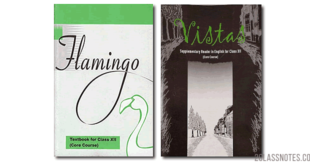The Bond of Love: NCERT 9th Class CBSE English Beehive Chapter 09
Question – The Bond of Love: Given in the box are some headings. Find the relevant paragraphs in the text to match the headings.
An Orphaned Cub; Bruno’s Food-chart; An Accidental Case of Poisoning; Playful Baba; Pain of Separation; Joy of Reunion; A Request to the Zoo; An Island in the courtyard
Answer – The Bond of Love:
An Orphaned Cub – para 3
Bruno’s Food-chart – para 6
An Accidental Case of Poisoning – para 8
Playful Baba – para 12
Pain of Separation – para 14
Joy of Reunion – para 16
A Request to the Zoo – para 18
An Island in the Courtyard – para 21
Question – The Bond of Love: Answer the following questions.
1.”I got him for her by accident.”
- Who says this?
- Who do ‘him’ and ‘her’ refer to?
- What is the incident referred to here?
2. “He stood on his head in delight.”
- Who does “he” refer to?
- Why was he delighted?
3. “We all missed him greatly: but in a sense we were relieved.”
- Who does ‘we all’ stand for?
- Who did they miss?
- Why did they nevertheless feel relieved?
Answer – The Bond of Love:
- (i) The above lines are spoken by the narrator.
(ii) Here, ‘him’ refers to the sloth bear and ‘her’ refers to the narrator’s wife.
(iii) In the above line the author refers to his first encounter with Baba and the subsequent gift he makes to his wife. Once while in Mysore, the author and his friends encounter a black sloth bear. She comes out of a sugar cane field trying to escape the bullet shots that were aimed to evacuate the pigs. Unfortunately, one of the narrator’s companions shoots her on the spot. It is then that they notice a baby bear that was riding on her back. The narrator grabs him and to his wife’s delight, gifts him to her. - (i) ‘He’ refers to the bear, Bruno.
(ii) Bruno was delighted to see the narrator’s wife after three months of separation. - (i) ‘We all’ stands for the narrator, his wife and his son.
(ii) They missed Bruno (Baba).
(iii) They felt relieved because Baba was getting too big to be kept at home. That is why they had sent him off to a zoo.
Question: Answer the following questions in 30 to 40 words each.
- On two occasions Bruno ate / drank something that should not be eaten /drunk. What happened to him on these occasions?
- Was Bruno a loving and playful pet? Why, then, did he have to be sent away?
- How was the problem of what to do with Bruno finally solved?
Answer – The Bond of Love:
- Once, Bruno ate some poison meant for the rats, which paralyzed and weakened him. He also vomited and breathed heavily, but was later cured. In another incident, he drank nearly a gallon of old engine oil. Fortunately, he remained unaffected.
- Yes, Bruno was a loving and playful pet. Everybody in the family was attached to him, especially the narrator’s wife. However, he had to be sent away to a zoo because he was getting too big to be kept at home.
- Bruno had grown quiet big to be kept at home, due to which the author’s family had send him to the zoo. However, the problem was ultimately resolved by making an island for the bear, keeping all his needs in mind.
Question – The Bond of Love:
1. Find these words in the lesson. They all have ie or ei in them.
f____ ld ingred _____ nts h ____ ght misch _____ vous
fr ____ nds _______ ghty-seven rel ____ ved p ____ ce
2. Now here are some more words. Complete them with ei or ie. Consult a dictionary if necessary.
bel___ ve rec ____ve w ___rd l ___sure s ___ze
w ____ght r ____gn f ______gn gr _____f p _____rce
(There is a popular rule of spelling: ‘i’ before ‘e’ except after ‘c’. Check if this rule is true by looking at the words above.)
Answer – The Bond of Love:
1.
- field
- ingredients
- height
- mischievous
- friends
- eighty-seven
- relieved
- piece
2.
- believe
- receive
- weird
- leisure
- seize
- weight
- reign
- feign
- grief
- pierce
Question: Here are some words with silent letters. Learn their spelling. Your teacher will dictate these words to you. Write them down and underline the silent letters.
knock wrestle walk wrong
knee half honest daughter
hours return hornet calm
could sign island button
Answer:
Knock Wrestle Walk Wrong
Knee Half Honest Daughter
Hours Return Hornet Calm
Could Sign Island Button
Question: How to look at an Index
An index is a list of names or topics that are to be found in a book. It is a list arranged in alphabetical order at the end of a book.
The following paragraph shows that the doctor is consulting the index of a medical book to find out which injection is appropriate for Bruno.
“Out came his medical books, and a feverish reference to index began: What poison did you say, sir?” “Barium carbonate”. “Ah yes – B – Ba – Barium Salts – Ah! Barium carbonate! Symptoms – paralysis – treatment – injections of … Just a minute, sir. I’ll bring my syringe and the medicine.”
1. You have read about the French Revolution and you want to know more about the Third Estate in the context of the French Revolution. You can refer to the index of the book Living World History by T. Walter Wallbank and Arnold Schrier:
On which pages in this book will you find information about the French Revolution and the Third Estate?
2. To know what ‘Food Security’ and ‘Minimum Support Price’ mean in the context of the economic growth of a country you can go to the subject index given below from Poverty and Famines – An Essay on Entitlement and Deprivation by Amartya Sen. Under which heading in the index are you likely to find these topics?

3. Given below is a portion of an index page from the book, French’s Index of Differential Diagnosis, edited by F. Dudley Hart M.D., F.R.C.P.

Study the entries and find out whether the following topics are discussed in the book.
- bronchitis due to cigarette smoking
- heart failure due to bronchitis
- bronchitis in children
Answer:
1. Information about the French Revolution could be found on pages 393, 404-405, 427 and 489, while that of the Third Estate could be found on pages 404 and 405.
2. We will likely find about what ‘Food Security’ and ‘Minimum Support Price’ mean in the context of the economic growth of a country, under the topic “Food availability decline (FAD thesis)”.
3. All the above topics are discussed in the book.
Question:
1. The Narrative Present
Notice the incomplete sentences in the following paragraphs. Here the writer is using incomplete sentences in the narration to make the incident more dramatic or immediate. Can you rewrite the paragraph in complete sentences?
(You can begin: The vet and I made a dash back to the car. Bruno was still floundering …)
(i) A dash back to car. Bruno still floundering about on his stumps, but clearly weakening rapidly; some vomiting, heavy breathing, with heaving flanks and gaping mouth.
Hold him everybody! In goes the hypodermic – Bruno squeals – 10 c.c. of the antidote enters his system without a drop being wasted. Then minutes later: condition unchanged! Another 10 c.c. injected! Ten minutes later: breathing less stertorous – Bruno can move his arms and legs a little although he can not stand yet. Thirty minutes later: Bruno gets up and has a great feed! He looks at us disdainfully, as much as to say, ‘What’s barium carbonate to a big black bear like me?’ Bruno is still eating.
(ii) In the paragraphs above from the story the verbs are in the present tense (eg. hold, goes, etc.). This gives the reader an impression of immediacy. The present tense is often used when we give a commentary on a game (cricket, football, etc.), or tell a story as if it is happening now. It is, therefore, called the narrative present.
You will read more about the present tense in Unit 10
2. Adverbs
Find the adverbs in the passage below. (You’ve read about adverbs in Unit 1.) We thought that everything was over when suddenly a black sloth bear came out panting in the hot sun. Now I will not shoot a sloth-bear wantonly but, unfortunately for the poor beast, one of my companions did not feel that way about it, and promptly shot the bear on the spot.
(i) Complete the following sentences, using a suitable adverb ending in -ly.
- Rana does her homework _______________.
- It rains ___________ in Mumbai in June.
- He does his work _____________.
- The dog serves his master _____________.
(ii) Choose the most suitable adverbs or adverbial phrases and complete the following sentences.
- We should ____________get down from a moving train. (never, sometimes, often)
- I was ___________ in need of support after my poor performance. (badly, occasionally, sometimes).
- Rita met with an accident. The doctor examined her ______________. (suddenly, seriously, immediately)
3. Take down the following scrambled version of a story, that your teacher will dictate to you, with appropriate punctuation marks. Then, read the scrambled story carefully and try to rewrite it rearranging the incidents.
A grasshopper, who was very hungry, saw her and said, “When did you get the corn? I am dying of hunger.” She wanted to dry them. It was a cold winter’s day, and an ant was bringing out some grains of corn from her home. She had gathered the corn in summer.
“I was singing all day,” answered the grasshopper.
“If you sang all summer,” said the ant, “you can dance all winter.”
“What were you doing?” asked the ant again.
The grasshopper replied, “I was too busy.”
“I collected it in summer,” said the ant. “What were you doing in summer? Why did you not store some corn?”
Answer:
1.(i) The vet and I made a dash back to the car. Bruno was still floundering about on his stumps, but clearly he was weakening rapidly. There was some vomiting and heavy breathing. His flanks were heaving and his mouth was gaping.
Everybody was asked to hold him. The hypodermic medicine went into Bruno, who squealed. 10 c.c. of anecdote entered his system without a drop being wasted. Even ten minutes later, the condition was unchanged. Another 10 c.c. was injected into him. Ten minutes later, his breathing became less stertorous. Bruno could move his arms and legs a little although he could not stand yet. Thirty minutes later, Bruno got up and had a great feed. He looked at us disdainfully, as much as to say, ‘What’s barium carbonate to a big black bear like me?’ Bruno was still eating.
2.We thought that everything was over when suddenlya black sloth bear came outpanting in the hot sun. NowI will not shoot a sloth-bear wantonlybut, unfortunatelyfor the poor beast, one of my companions did not feel that way about it, and promptlyshot the bear on the spot.
- Rana does her homework timely.
- It rains heavilyin Mumbai in June.
- He does his work properly.
- The dog serves his master faithfully.
(ii)
- We should never get down from a moving train.
- I was badly in need of support after my poor performance.
- Rita met with an accident. The doctor examined her immediately.
3. It was a cold winter’s day, and an ant was bringing out some grains of corn from her home. She had gathered the corn in summer. She wanted to dry them. A grasshopper, who was very hungry, saw her and said, “When did you get the corn? I am dying of hunger.” “I collected it in summer,” said the ant. “What were you doing in summer? Why did you not store some corn?” The grasshopper replied, “I was too busy.” “What were you doing?” asked the ant again. “I was singing all day,” answered the grasshopper. “If you sang all summer,” said the ant, “you can dance all winter.”
Question: Pets have unique care and handling requirements and should only be kept by those with the commitment to understand and meet their needs. Give your argument in support of or against this statement.
Or
There is an on-going debate on whether snake charmers should continue in their profession. You can get some idea about the debate from the newspaper clipping (The Hindu, 16 June 2004) given below. Read it, discuss in pairs or groups, and write either for or against the profession of snake charmers.
Report comes in support of snake charmers
By Our Staff Reporter
NEW DELHI, JUNE 15. Over 30 years after the introduction of the Wildlife Protection Act (WPA) that banned the catching of snakes in India, a small community of snake charmers continues to practise the trade catching over 400,000 snakes every year – which ultimately die – in defiance of the law.
A report based on new research by the Wildlife Trust of India (WTI), however, has strongly recommended that the traditional knowledge of the snake charmers and skills be now utilised for education and medicine by setting up sapera centres. This is mainly because the community has virtually no access to land, education or employment opportunities. They are dependent on snake charming to earn a livelihood. They trade around as vendors of traditional medicine, snake catchers and musicians. Ignorance about the law is quite common.
The report entitled ‘Biodiversity, Livelihoods and the Law: The Case of the Jogi-Nath Snake Charmers of India’ based on path-breaking research was formally released by the Inspector General of Forests, V.K. Bahuguna, along with a presentation by members of the sapera community in the Capital on Monday.
“Despite thirty years of the law being in existence, over 70 per cent of the Jogi-Naths are still dependent on snake charming to earn a livelihood. Ignorance about the law was quite common. None of them own land, even though they would like to,” said Bahar Dutt, who led this research. Notably, most of those practising the trade in the current generation are all under 35 years of age.
Trapping occurs throughout the year and during their travels, though this activity increases during the monsoons. According to the data, each family on an average collects at least seven snakes.
Most snakes were force-fed and snake husbandry methods and health were found to be poor. “The snake charmers community council imposes a heavy fine on a person if the snake dies in his custody as it is considered an extremely bad omen. As a result, the snakes are released when the charmers realise that their condition is deteriorating,” said Dutt. Their ambition to showcase the reptiles and earn money was not fulfilled, as they flouted four WPA provisions, for illegally possessing the animals, not feeding them properly, causing injuries by extracting teeth unscientifically and killing snakes for the valuable snake parts and bones. Their offence generally invites imprisonment for three to seven years and a fine up to Rs 25,000 in each case.
“On the positive side researchers found that the snake charmers possess a unique ability to handle venomous snakes with a tremendous knowledge of the different species and their behaviour. They are also called by local farmers to retrieve snakes, who would otherwise just kill them, from agricultural fields or human inhabited areas,” she said.
Answer – The Bond of Love:
Pointers:
For the motion:
- need individual love and care
- not everyone can meet the handling requirements
- everyone is not sensitive enough to understand and provide the needs of the animals unconditional commitment is required
- busy and insensitive people cannot handle pets
- such people should avoid taking such responsibility
- will only hurt the innocent animal
Against the motion:
- children and pets are alike
- love develops once we are around our pets
- animals are sensitive to our love and care and will respond alike
- animals need attention
- experience teaches ways to nurture
- no special training required
Or
For the motion:
- way to earn their livelihood
- utilization of traditional knowledge and skills for education and medicine
- sell traditional medicine
- entertain people
- fine imposed if snake dies – so try not to let it die
- unique ability to handle venomous snakes
Against the motion:
- WPA has banned it – illegal but ignore law
- snakes die or killed – for skin and bones
- most of snake charmers young – should take up different profession
- snakes – force fed, poor health and snake husbandry methods
- do not take care of snakes if condition deteriorates – fear of being fined
- hurt snake – teeth extracted
Question – The Bond of Love: ‘Animals also feel the pleasure of love and the pain of separation’. Make a presentation by giving examples from your own experience.
Answer – The Bond of Love:
Pointers:
- capacity to give unconditional love
- respond to love and care shown
- you feed stray dogs – they look forward to your return the next day
- show delight -wag tail – stretch – jump
- when you were ill – dogs kept barking – stayed near your house – followed your car when you went to hospital
 Class Notes NCERT Solutions for CBSE Students
Class Notes NCERT Solutions for CBSE Students





